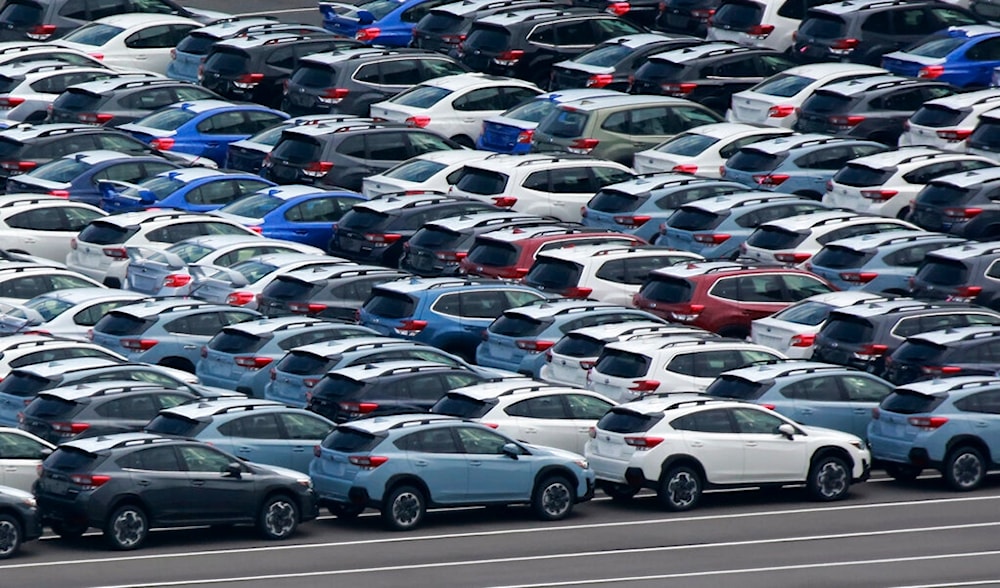Yemeni operations against 'Eilat' port to skyrocket car prices
Israeli media outlets underscore that the Yemeni operations against the Israeli port of "Eilat" have resulted in a steep decline in car imports to "Israel".
-

Subaru cars are parked to be exported at Kawasaki port, near Tokyo on Sept. 7, 2021. (AP)
Yemeni operations in the Red Sea and against "Eilat" resulted in a decline in car imports through the port of "Eilat" in southern occupied Palestine, indicating expectations of rising car prices in the second half of 2024.
The Israeli news website, Calcalist, reported that the last time a ship carrying cars entered the port of "Eilat" was on November 20 of last year.
According to the report, not a single car was unloaded at the port in January and February 2024, confirming that the market is preparing for shortages and price increases in the second half of the year.
This comes as the Yemeni Armed Forces continue to carry out operations against Israeli ships and ships heading to Israeli occupation ports. Additionally, they have repeatedly targeted "Eilat" with ballistic missiles and drones in response to Israeli aggression and blockade against Gaza.
Amid the seriousness of the decision by the Yemeni Armed Forces, maritime shipping companies have suspended their activities in the Red Sea, resulting in significant economic losses for the occupation.
'Eilat' port CEO labels it non-functional due to Yemeni strikes
Earlier in March, Israeli Channel 14 hosted the CEO of the port of "Eilat", Gideon Golber, to describe the current situation of the port and how the Yemeni Armed Force's (YAF) operations in the Red Sea against Israeli vessels or ships heading to the occupied ports of Palestine have been affecting its activity.
During the interview, Golber shed light on the important role this port holds for the occupation labeling it as the only southern seaport for the Israeli occupation of the Far East and Australia without having to pass through the Suez Canal. He added that this holds high importance as most of the ports are located on the European side and in the United States and all activities from "Eilat" are with the Far East.
Golber said that ever since the YAF began their operations in the Red Sea and closed the Bab al-Mandab Strait, all activities on the "Eilat" port have been halted and ever since that happened, all settlers operating on it or using it have been out of a job.
He added that this port is responsible for around 50 to 55% of imported vehicles from the Far East, adding that the occupation exports around 1.8 to 2 million tons of potassium and phosphate from the Dead Sea. It also imports claves and sheep from Australia and they have some other secondary activities, Golber said.
Read more: Live from 'Eilat' port, Dimitri Lascaris details impact of Yemeni ops

 3 Min Read
3 Min Read








